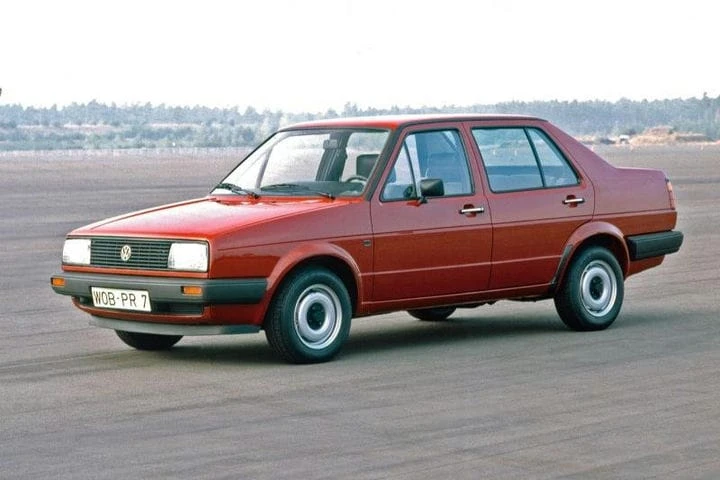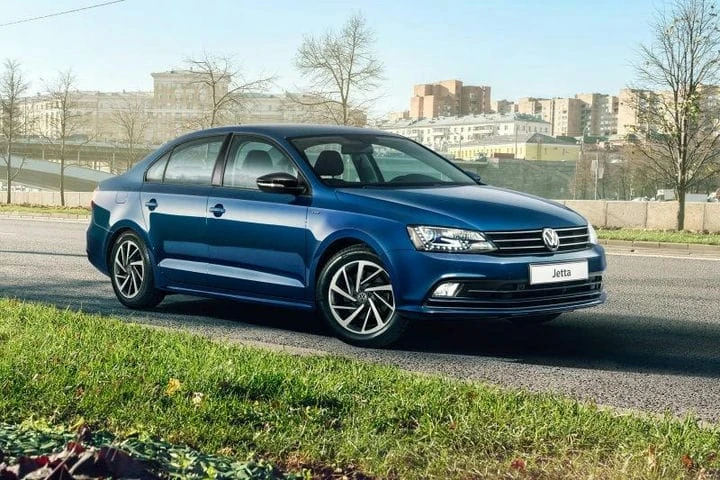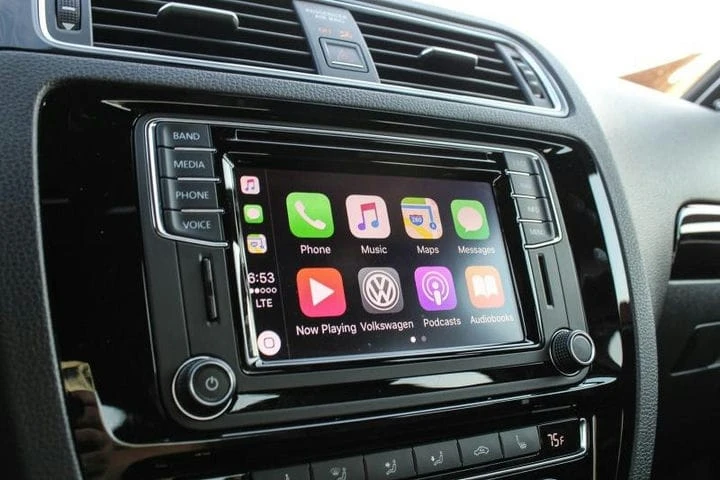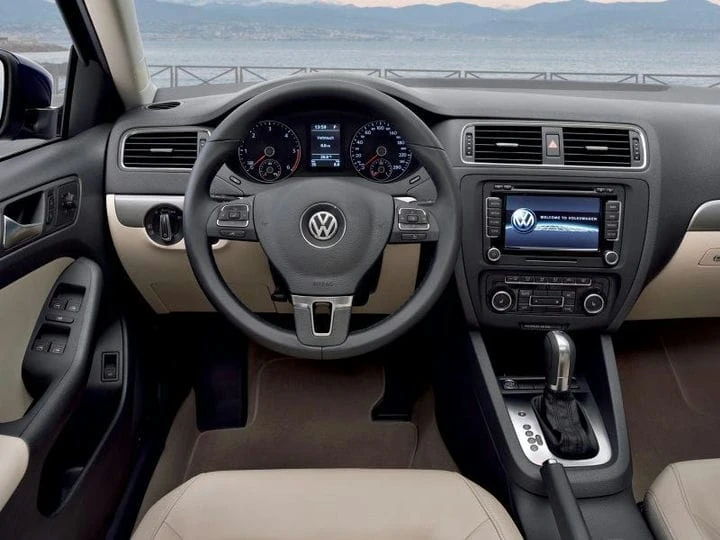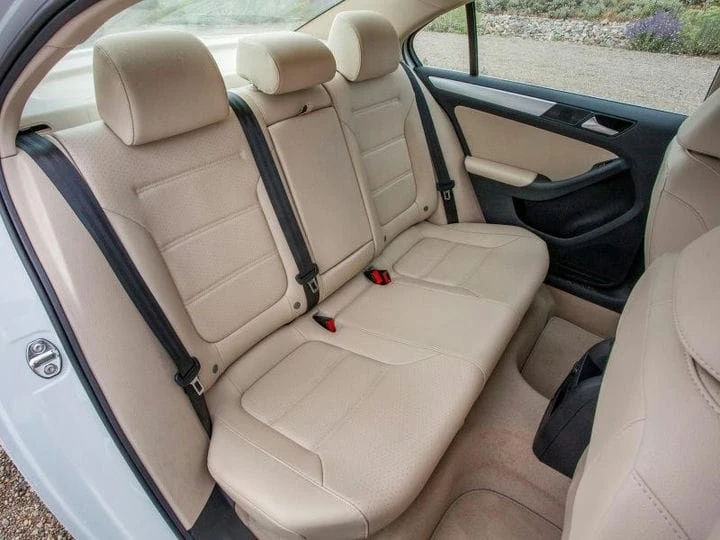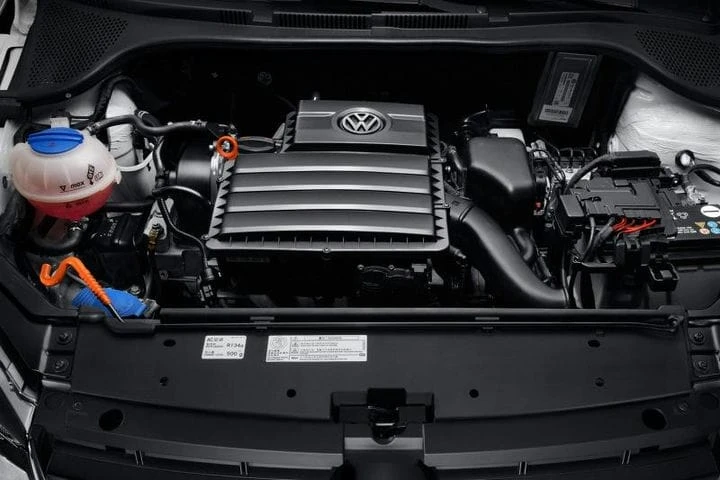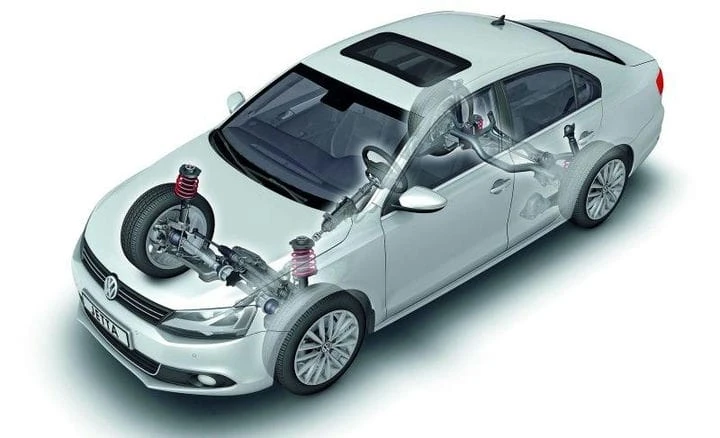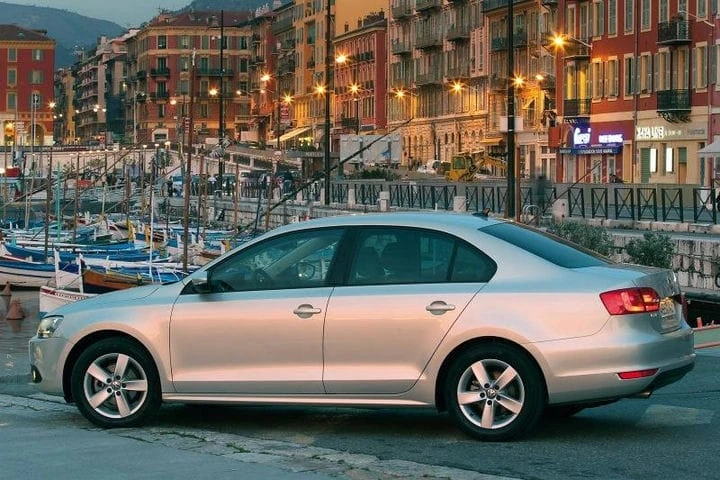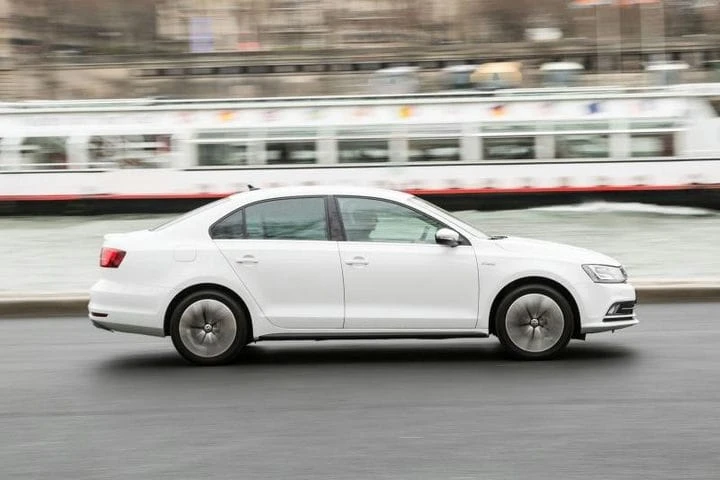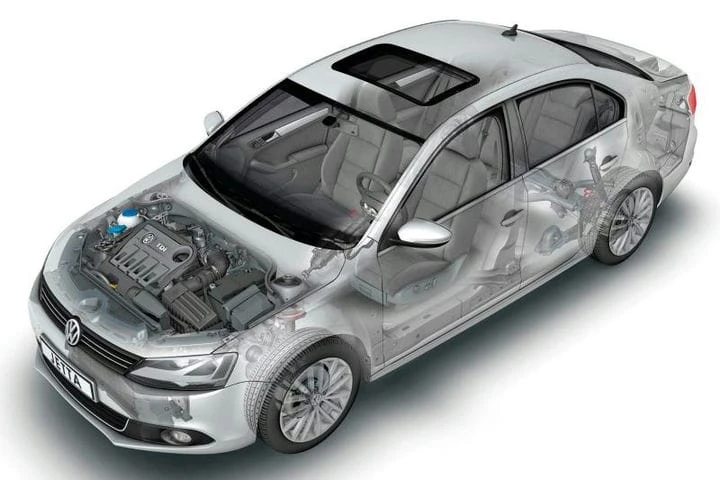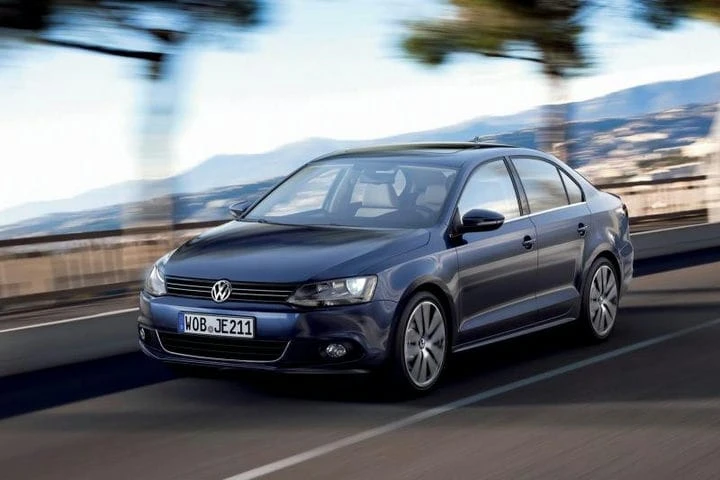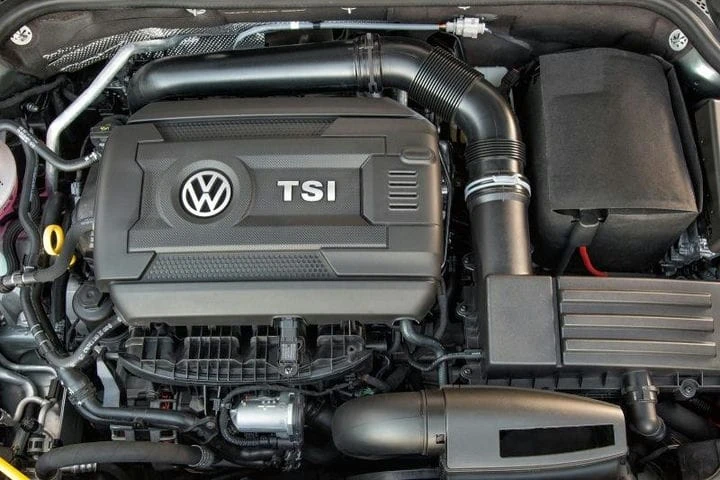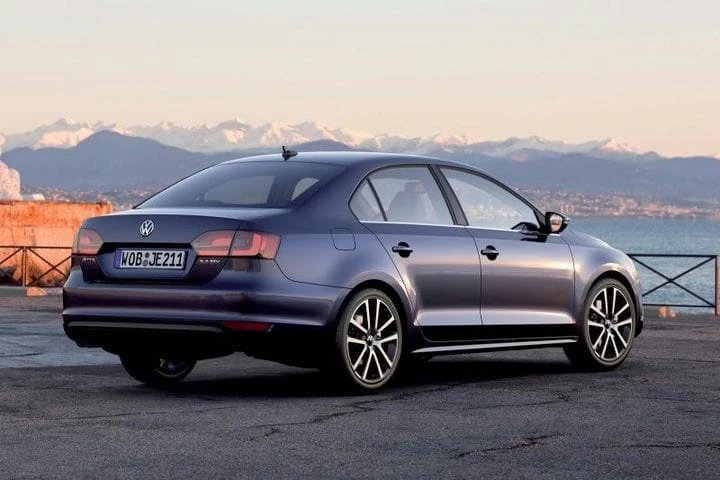5 reasons to buy and not to buy Volkswagen Jetta VI
Jetta is out of luck in our market. Many considered it just an overgrown Polo and did not take it seriously. Some believed that if there is not enough money, then it is better to buy a Polo Sedan, and if there is a lot, then just Passat. And Jetta is neither fish nor meat, and you definitely shouldn't look in her direction. It's a shame, because there was something good about this car. However, there were many bad things.
History of technology
I will not tell the story of all the previous five generations of Jettas (including the third under the name Vento and the fourth, known to us as Bora). All of these cars were beautiful in their own way, but technically they were Golf sedan. That is, they differed from the sedan in body panels and practically nothing. Another thing is the sixth generation, which was developed on the PQ35 platform, which connected the Jetta not with the Golf, but with the larger Volkswagen Touran and the first generation Tiguan. And the goal of developing this car was a bit special: to conquer the US and Canadian markets.
Volkswagen Jetta 1984-87
The sixth generation Jetta was also presented not in Europe, but in the USA, in New York. This happened in 2010, and since the car had high hopes in the American market, it was provided with typically American engines (by the standards of 2010) of 2 and 2.5 liters. Recently, such machines have not been officially sold.
more recently, as in Europe, other engines have been offered. These were already well-known TSI engines with a volume of 1.2 and 1.4 (EA111 series) and 2 liters (EA888), as well as very popular 1.6 MPI atmospheric engines (also EA111). There were also very rare 1.6 and 2 liter diesels, both the EA189 series and the later EA288.
In 2013, Jets began to be assembled in Nizhny Novgorod, and in 2014 the model was restyled. The most important novelty of restyling is the EA211 series engines instead of EA111. Despite the same volume and close power, these are completely different units and differ not only in the timing drive (chain on EA111 and belt on EA211).
Volkswagen Jetta 2010-18
There were several transmissions on this generation of the Jett, ranging from five- and six-speed manual transmissions to seven-speed dry-clutch DQ200 robots paired with a 1.4 TSI petrol and 1.6 TDI diesel. More powerful cars could be bought with a six-speed DQ250, but not recently – there were no such configurations on our market.
The most popular automatic transmission on our market is, of course, not a DSG, but a classic Aisin TF-61SC (or 09G) torque converter. The version with this gearbox and 1.6 MPI engine has received a lot of love lately, but not enough to keep the model in our market. In 2018, the Jett was discontinued and the new generation Jetta A7 is mainly sold in the US and China. Well, let it sell, and we'll see why the sixth generation Jett has been both loved and despised lately.
I hate. 5: main unit
I never thought that Jetta was chosen by aesthetes and music lovers. But, apparently, it was, otherwise it is difficult for me to explain the appearance of a large number of complaints about the sound of the main unit. Although there is nothing to explain here, it is enough to read the following: “The radio tape recorder is” wild China “, it is not integrated with the car system, that is, it is just a balalaika of wildly poor quality.” Sad. Some even wanted to “stretch their ears.” Well, I can understand: in a C-class car, you always want a little more sound. And besides, there are such observations: “Regular radio covered itself – a little more than two years left.” Here are the Germans.
2010-18 Volkswagen Jetta
Love #5: Maintenance Work and Interior Equipment
No, no, not everything is perfect in the Jetta's cabin! Some complain, for example, about the inconvenient position of the button for turning on the heated mirrors. But there are only such units, otherwise the work of all electronics is very pleasant: “All sorts of nice little things like cruise control, rain sensor, light sensor, headlight washer work perfectly.” At the same time, I note that the quality of the interior materials, its design, ergonomics – all this is somehow imperceptible. They don't scold, but they don't particularly praise either. But the work of everything in the cabin is still often admired. For example, like this: “The rain sensor works consciously, and not like on some machines: it cleans, so it doesn’t, but it cleans exactly at the right time.”
Volkswagen Jetta 2010-18
funny that the only electronic “bun” that some do not like the work is… yes, the rain sensor itself. You can't please everyone what to do.
Hate #4: EA111 engine warm-up
I will not talk about the problem in my own words – one of the owners described it in great detail in the review of his car. I will quote: “… this machine is completely unsuitable for our conditions. I pronounce him the man who exploited him during our two winters. It just does not warm up to operating temperature, the concept of “heating” in our understanding is not applicable to a car. The manual mockingly says: do not drown the car on the spot, immediately start moving, warm up on the go. It's already fun. What about frozen glass? Or do you go to the first pillar? “There are a lot of them in the car in cold weather. And that is not all.
Surprisingly, the EA111 series gasoline engines worked like diesel engines in traffic jams. They managed to cool down in them, and it became cold again in the cabin until it was possible to spin the crankshaft again.
People were freezing and cursing until it was replaced by the EA211 engine series. It became warmer with them, and the climate in the passenger compartment after restyling generally suits the inhabitants of the northern regions.
love n. 4: suspension work
Jetta suspensions are almost all described as very balanced. Fun fact: this generation's rear suspension could be independent or semi-independent beam. However, both are equally praised. Those who had to ride on the beam do not consider themselves deprived and are also happy with everything.
The answers are about the same: “Of course, I didn’t drive on dead roads, but the junctions of bridges, small bumps on the pavement or country primer work perfectly. Everything stays somewhere downstairs, without a harsh feedback on the seat. But at the same time, the suspension is very “collected”, which allows the car not to roll in corners and not sway on the waves of the highway “hard – or rather, the golden mean.”
Volkswagen Jetta 2010-18
Do not think that the Jetta is only good on a quality asphalt track. No, he is completely “omnivorous” and if you don’t climb completely impassable places, there will be nothing to blame for the car: “I drove not only on asphalt: my relatives live 60 km from the city, the road is not paved, at first I was very worried about suspension, but, as it turned out, in vain. It keeps steady on the road, “wanders” along the rut, but leaves without skidding, does not “frighten” with sudden changes, steers reliably… In winter, it didn’t get stuck anywhere, and rowing was a good meter.
There are no complaints about the resource either. The only thing that needs to be changed more often than we would like is the stabilizer links. But it's not that expensive, and the owners don't care.
I hate. 3: fatty oil
We pass to more interesting moments. What does a Jetta have with a churn? Honestly I do not know. The situation is very strange: judging by the reviews, there is no dependence on the car engine (EA111 or EA211) – everyone has oil. Or they may not eat at all. There are a lot of lucky people who don't know what an oiler is. But at the same time, there are those who are ready to shout at him. I re-read a lot of reviews about the maslozhora (it was interesting to find a pattern), but I did not find it. I found only numbers: “Driving style is retirement. “A liter of oil per 10 thousand km”, “1.6 liters, mileage 125,000, from the very beginning he eats 1 liter per 10,000”.
interestingly, some people don't think it's wrong to consume a decent amount of butter: “I don't have a butter churn yet. Leave a maximum of 500 grams for 7000 km. “Comrade, I have bad news for you: 500 grams per 7000 km is a plate of oil. Alas.
Volkswagen Jetta 2010-18
And don't think that 1.6 MPI engines, which some consider timeless and flawless, can't eat oil. They also know: “For a Jetta, it is clearly quite weak, lovers of dynamic driving should not take this into account. In addition, it is prone to oil consumption, consumption can reach 2 liters per 15,000 km. “In this review, it was a chain drive, but later EA211s can be seen in this sin.
Well, I cannot share this opinion: “I don’t see a problem in buying 3-4 liters of oil every 10 thousand km. Morally unpleasant, but no longer… “. In my opinion, Socrates, who drank the cup of poison, for me now is not the personification of fortitude and acceptance of the inevitable. But not seeing problems in three or four liters of oil is strong. I couldn't do it. Probably Socrates too.
And one more conclusion: do not believe all the owners who claim that there is no oil producer. For many, a liter per ten thousand is nonsense, which is simply not worth paying attention to. This is of course the wrong approach.
love n. 3: almost no rust
A somewhat paradoxical reason for love, and now I will try to explain what the paradox is.
First, the Jetta is easily chipped and scratched. And no one hides this: “LKP, like everyone else, is kind enough, just a scratch.” But the main thing is the quality of galvanizing. Despite the large number of chips, it is difficult to see corrosion on the Jetta. And everyone without exception likes it: “There are chips on the hood, but this is not corrosion”, “There were several scratches on the metal of my car, I did not observe any corrosion.” In general, the paint is rather weak, but cheers! – no rust.
Volkswagen Jetta 2010-18
however, over time, corrosion can still appear. On cars of the first years of production, it is already found mainly on the arches of the rear wings. And in the event of an accident and subsequent repair, the paint can fall off in layers from galvanized metal, which is simply ugly. That is, the Jetta's corrosion resistance is high, but miracles do not happen: all the time, until the metal rusts, the protective zinc layer is slowly destroyed. But when it completely collapses…
I hate. 2: “Does not spoil, but hurts”
In general, Jetta is described as a reliable car (especially with a 1.6 engine after restyling), but I came across a wording that very briefly characterizes this very reliability. One of the owners wrote that he was tortured.” not breakdowns, but sores. I note that almost all of them are associated with winter frosts and there are not so many of them. But almost everyone has them.
Volkswagen Jetta 2010-18
A classic example: “In winter, there was a case: after washing, I opened the doors to ventilate so that they would not freeze later (the car is parked outside all year round). The next morning, the doors opened slightly, but the speakers in the doors stopped working, only because of the creaking of the counters there was an unpleasant creak. In general, as it turned out later, this is Jetta's plague: at low temperatures and high humidity in the cabin, for example, from water on the carpet and with a sharp drop in temperature, condensation can form on the speakers, as a result of which the speakers stop working, and it is better in this case do not force them, trying to raise the sound, but put the car in a warm box for at least 2-3 hours and everything will be fine. “The problem with loudspeakers, which often fail in the cold, is a prime example of such a “pain”.
And another quote: “In winter, children's sores popped up, namely: a) the level sensor of the washing machine turned on; b) the trunk lock refused to open from the button on the trunk – only from the key or from the passenger compartment. “And there are too many of these ‘ulcers'. But they steadfastly endure adversity, because there is nowhere to go. And you can always calm down with the mantra adopted by “jet drivers”: “But this is a German””, by no means “Korean”.
love n. 2: fuel consumption
To be honest, I did not want to talk about this banal thing, but, apparently, I have to: many laudable hatreds are written for a small fee, which it would be unfair to ignore. I will express the opinion of the owner of a car with a 1.6 MPI engine: “. very good gas mileage (highway 5.2-5.5 l/100 km).” Oh, and one more thing: the consumption is modest, when driving no more than 130 km / h, the average consumption is not more than 6. I repeat, we checked it both during a trip to the sea and during a trip to other provincial and provincial cities, the consumption is very surprising.”
With 1.4TSI engines, some managed to achieve even lower fuel consumption on the highway, but the general order of numbers is the same: from 5.5 to 6.5 liters per hundred. Even if everything is as usual here: the consumption depends on the aggressiveness of the driver. However, there are absolutely no complaints about Jett's high appetite.
I hate. 1: combination of 1.6 MPI engine and Aisin automatic transmission
So, we come to the main thing. Now the patterns will be broken because the causes of the greatest love and the greatest hate are very similar. Let's talk about love a little lower, but I have already said almost everything about hate: the dynamics of a car with a 1.6 MPI engine and a classic automatic does not hold water. Also 110 hp. (this is the maximum that such an engine produces) for the weight of the Jetta – this is very small. And even more with an automatic transmission. As a quote, I will give an excerpt from a review in which the owner fully praised his car and did not find a single malfunction. But then he got better and wrote the following: “In my opinion, the car has one drawback – it is a weak 1.6 engine, which, in combination with an automatic transmission, given the significant weight of the car, gives mediocre dynamics. For those, who mainly drives around the city or on small local roads, this is not bad at all, there are enough speakers in the city with a head. But for those who often drive on the highway, or even infrequently, but periodically, before overtaking a truck, you need to think and weigh everything carefully, since the speed increase from the initial 100-110 km / h is slow.
Volkswagen Jetta 2010-18
There are many such complaints (“it is clearly rather weak for the Jetta, it is better not to consider it for lovers of dynamic driving”), but they almost always end with the words that it was a conscious choice. They say the classic car is only available with this engine, so there's nowhere to go. DSG and TSI are absolute evil in the minds of many, so you must consciously condemn yourself to very slow movements. But no. With these units, you can turn the Jetta on the track, but it will take a long time for the Jetta to warm up. Everyone talks about it, but the fear of the robot and the TSI engine is stronger.
I note that even if we abandon the car in favor of mechanics, the Jett with a 1.6 engine will not become noticeably faster. And there is only one way out: overcoming the fear of direct injection engines. As…
love n. 1: “1.4 TSI and DSG is power!”
I confess: I expected to read a horror series about a “dry” seven-speed robot. But I didn't. For some reason, he is not as scary on the Jetta as he is thought, because the cars are relatively cool and after 2014 these robots almost stopped falling. Yes, sometimes you hear groans about replacing the clutch, but they are few.
Volkswagen Jetta 2010-18
There are not so many complaints about TSI engines either. And if on the EA111 series they really complained about the timing chain, which sometimes stretched unpredictably quickly, then there are practically no complaints about the EA211. In any case, with runs up to 150 thousand (and it’s still quite difficult to find more kilometers). And although the cars are still young, their dynamics are receiving a flurry of rave reviews: “The engine, combined with the adaptive gearbox, is surprisingly responsive. I've long since come of age throwing up at traffic lights in a Gazelle race, but it's still very nice, and sometimes very useful, to be sure that at any speed you can press the pedal and the car will accelerate as you go. “Or even like this: “But the highlight of this car is the DSG box and the TSI engine. To be honest, just because of this package, you can close your eyes to some shortcomings.”
Volkswagen Jetta 2010-18
Satisfied with the dynamics, efficiency and even reliability (on new cars of course). Many say that the 1.4 TSI Jetta and DSG and the 1.6 MPI Jetta and TF-61SC are two completely different cars. I fully agree with this thought. The main thing is that it does not fail for as long as possible, because the repair of these units, although mastered for a long time, is still quite expensive. However, nothing is cheap now, but TSI and DSG can at least bring joy that owners of cars with MPI engines do not even dream of.

